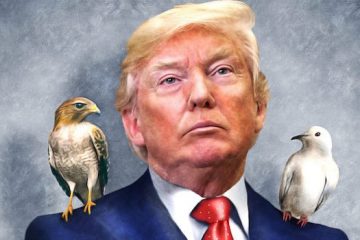
Hawk, Dove, Eagle or Headless Chicken? US Foreign Policy under Trump
In early September, President Donald Trump lost his third National Security Adviser, John Bolton. Since then it emerged that the two clashed over a number of issues, with the former advocating for US intervention in a number of countries and the latter favoring a less confrontational approach. Reportedly, Trump quipped that “if it was up to John, we’d be in four wars now.” In fact, the president has repeatedly stated his aversion to foreign (mis-)adventures. Trump’s “America First” approach to foreign policy has been at odds with Bolton’s “America Everywhere” approach from the outset. Why, then, did a president with such dovish tendencies chose a hawk’s hawk as National Security Adviser? What does the ouster of John Bolton tell us …

Drones have put targeted killing on trial
The past few weeks have seen a flurry of activity aimed at achieving greater transparency and accountability with respect to the U.S. government’s practice of “targeted killing” (primarily through the use of drones).
To begin, the UN special rapporteur on counter-terrorism and human rights, Ben Emmerson, announced in late January the launch of an investigation into the “civilian impact” and “human rights implications” of drone attacks and other targeted killings by the U.S. and other states. The rapporteur claimed that such attacks pose a serious challenge to the existing framework of international law, and therefore require the development of new legal mechanisms to regulate use and ensure accountability. He also warned that if states engaged in drone attacks do not establish effective, independent, and impartial investigations of their actions, it might be necessary for the United Nations to do so. (Note: The UN investigation will examine 25 different cases of drone attacks, not all directed by the U.S. However, it remains the case that U.S. policy is a main focus of attention, particularly for China, Russia, and Pakistan, the three states that called for the investigation within the Human Rights Council).

Afghanistan’s human rights gains are too precious to compromise
Compared to the Taliban era of the 1990s, Afghanistan has made impressive gains in the sphere of human rights, especially women’s rights. The Afghan constitution prohibits discrimination between citizens “whether man or woman”. Consequently, Afghan women have a visible presence in parliament, cabinet, civil administration and media. As pillars of civil society activism, they have played a crucial role in expanding female education across the country. For the moment, the Afghanistan Independent Human Rights Commission keeps the government under scrutiny and the country’s vibrant media promotes a culture of free enquiry in what is still a predominantly tribal society. What Afghanistan has been able to achieve in the middle of a war, with international help, was virtually unthinkable over a …









